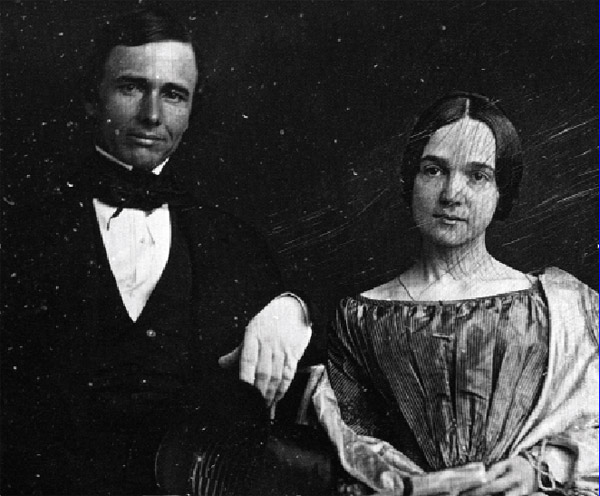
April 12, 1861
Anderson will not capitulate.
Yesterday was the merriest, maddest dinner we have had yet. Men were more audaciously wise and witty. We had an unspoken foreboding it was to be our last pleasant meeting. Mr. Miles dined with us today. Mrs. Henry King rushed in: “The news, I come for the latest news.” While she was here, our peace negotiator—or envoy—came in. That is, Mr. Chesnut returned—his interview with Colonel Anderson had been deeply interesting—but was not inclined to be communicative. Felt for Anderson. Had telegraphed to President Davis for instructions. What answer to give
Anderson, &c&c. He has gone back to Fort Sumter, with additional instructions.
I do not pretend to go to sleep. How can I? If Anderson does not accept terms—at four [a.m.]—the orders are—he shall be fired upon.
I count four—St. Michel chimes. I begin to hope. At half-past four, the heavy booming of a cannon. I sprang out of bed. And on my knees—prostrate—I prayed as I never prayed before. There was a sound of stir all over the house—pattering of feet in the corridor—all seemed hurrying one way. I put on my double gown and a shawl and went, too. It was to the housetop.
The shells were bursting. In the dark I heard a man say “waste of ammunition.”
I knew my husband was rowing about in a boat somewhere in that dark bay. And that the shells were roofing it over—bursting toward the fort. If Anderson was obstinate—he was to order the forts on our side to open fire. Certainly fire had begun. The regular roar of the cannon—there it was. And who could tell what each volley accomplished of death and destruction.
The women were wild, there on the housetop. Prayers from the women and imprecations from the men, and then a shell would light up the scene. Tonight, they say, the forces are to attempt to land…We watched up there—everybody wondered. Fort Sumter did not fire a shot.
After all that noise and our tears and prayers, nobody has been hurt.
Sound and fury, signifying nothing. A delusion and a snare.
Louisa Hamilton comes here now. This is a sort of news center. Jack Hamilton, her handsome young husband, has all the credit of a famous battery which is made of RR iron. Mr. Petigru calls it the boomerang because it throws the balls back the way they came—so Lou Hamilton tells us. To divert Louisa from the glories of “the battery,” of which she raves, we asked if the baby could talk yet. “No—not exactly—but he imitates the big gun. When he hears that, he claps his hands and cries ‘Boom boom.’” I do not wonder at Louisa Hamilton’s baby. We hear nothing, can listen to nothing. Boom, boom, goes the cannon—all the time. The nervous strain is awful, alone in this darkened room.
“Richmond and Washington ablaze,” say the papers. Blazing with excitement. Why not? To us these last days’ events seem frightfully great.
April 13, 1861
Nobody hurt, after all. Not even a battery the worse for wear. Fort Sumter has been on fire. He has not yet silenced any of our guns. So the aides—still with swords and red sashes by way of uniform—tell us. But the sound of those guns makes regular meals impossible. None of us go to table. But tea trays pervade the corridors, going everywhere. Some of the anxious hearts lie on their beds and moan in solitary misery… Not by one word or look can we detect any change in the demeanor of these negro servants. Laurence sits at our door, as sleepy and as respectful and as profoundly indifferent. So are they all. They carry it too far. You could not tell that they hear even the awful row that is going on in the bay, though it is dinning in their ears night and day. And people talk before them as if they were chairs and tables. And they make no sign. Are they stolidly stupid or wiser than we are, silent and strong, biding their time?




